10 Reasons to #GiveHope this Giving Tuesday
Posted in: About Anera
When you donate to Anera this Giving Tuesday, your gift will be matched up to $10,000. Below, we list 10 more reasons to #givehope to refugees and vulnerable communities.
1. Refugees need help more than ever
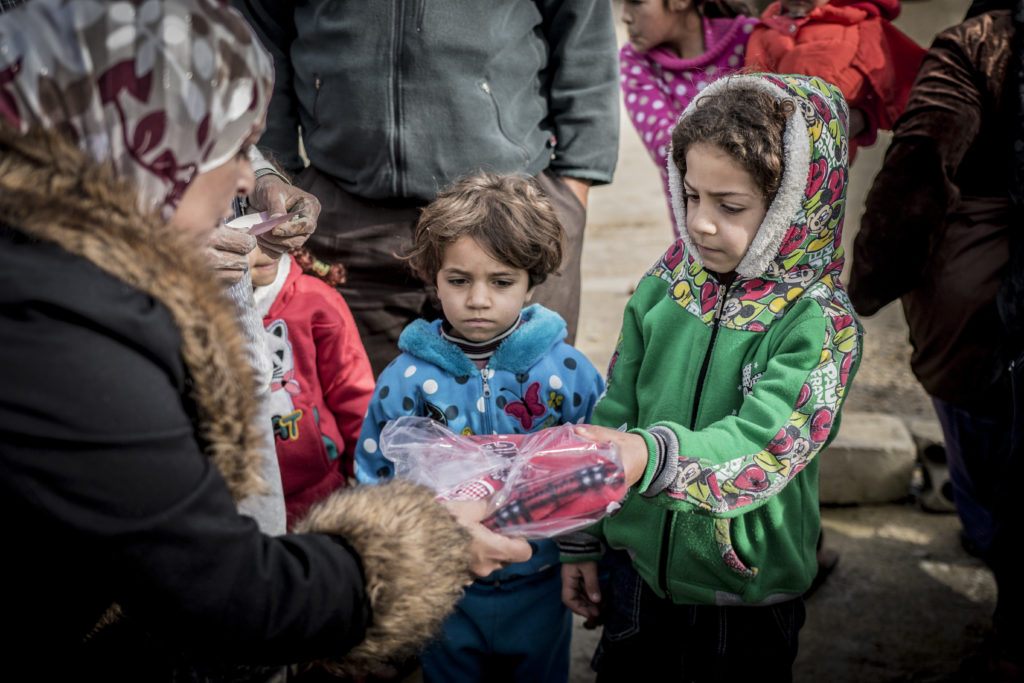

Anera found that one third of the refugee families live in shacks or garages with open vents. Quilts and warm clothes become precious in such critical living conditions.
While some countries are closing their doors to refugees, others are spread thin trying to accommodate the millions of displaced. Lebanon is one of the most affected by the refugee crisis, with an estimated one in three people being a refugee. Help is needed to make sure refugees and host communities can access basic needs like health care, shelter and education.
2. Poverty is widespread
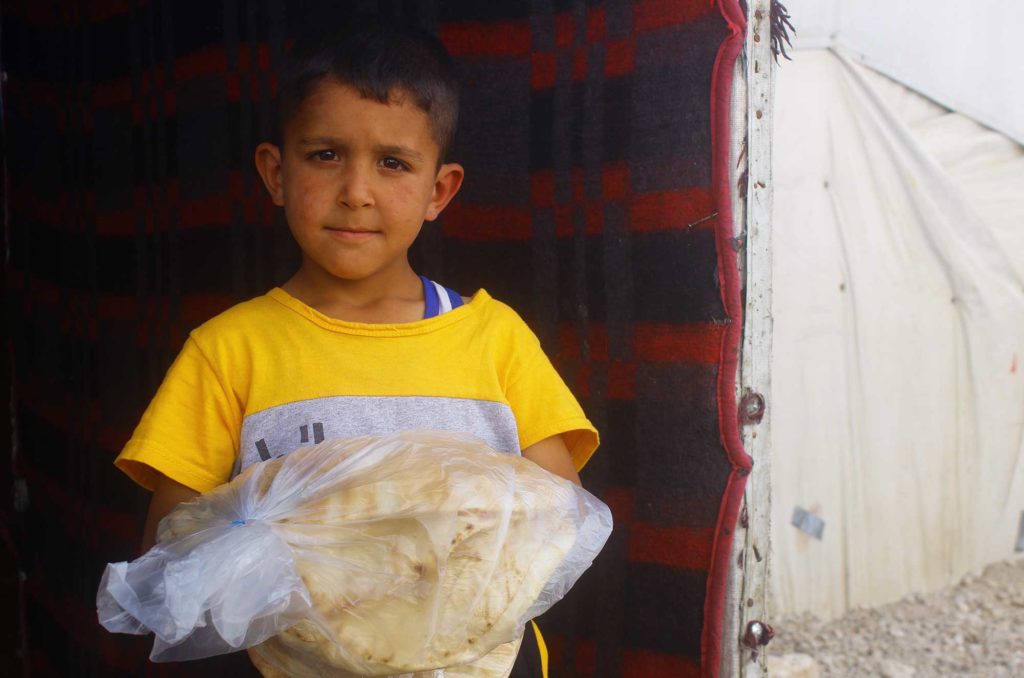

Omar is a Syrian refugee in Lebanon, where his family lives in poverty.
In Gaza, the poverty rate matches the rising unemployment rate, at about 40 percent. Even more shocking is the statistic that 80 percent rely on humanitarian aid. It’s no secret why the United Nations has warned that Gaza will become “unlivable” in just about two more years—though to many, it already is unlivable. And in Lebanon, the UNHCR estimates that over 70 percent of Syrian refugees live below the poverty line.
3. Jobs are hard to come by
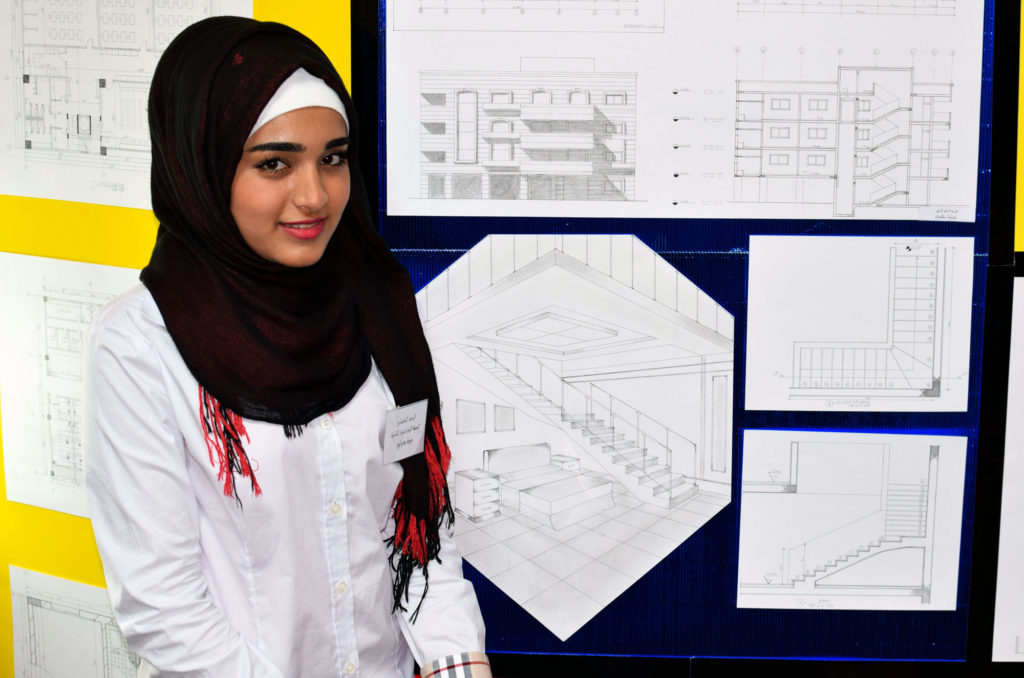
Similarly, Palestinian and Syrian refugees face restrictions on what types of jobs they can access in Lebanon. So when they can find jobs, they are usually low-paying and in the unregulated informal sector.
4. Many can’t go to school
About half of Syrian refugees in Lebanon don’t go to school due to classroom crowding, curriculum barriers, and scarce finances. Many, like 16-year-old Sami, have to work to support their families. Sami had to put his dreams of being a doctor on hold, but now he’s taking Anera’s non-formal education courses and has found reason to dream again.
5. The youth population is rising
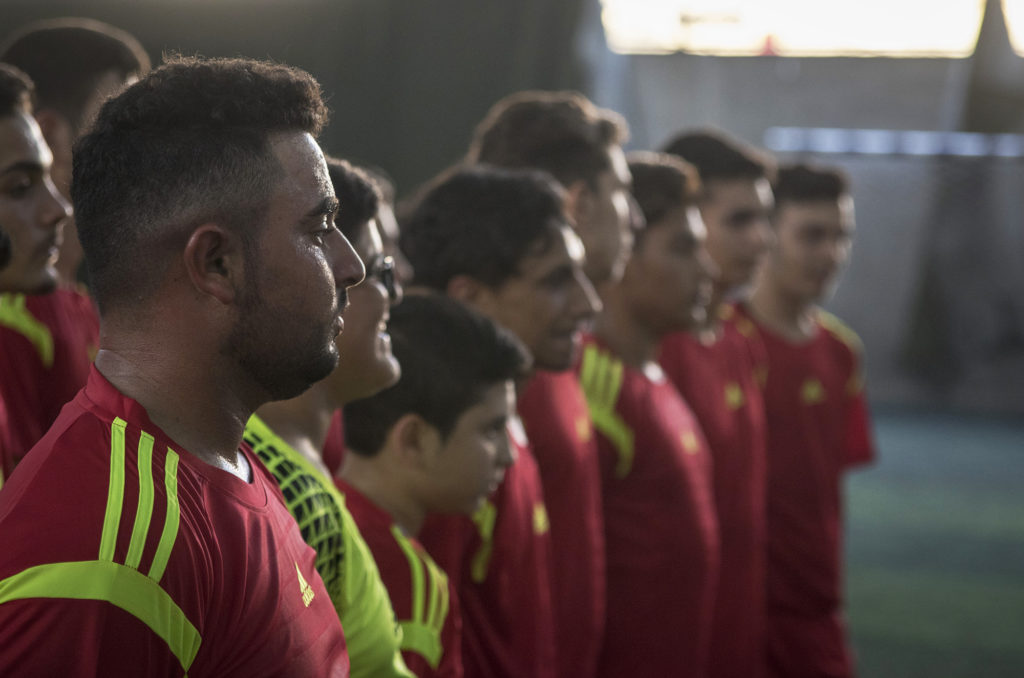

Syrian and Palestinian youth celebrate winning a championship soccer game.
65 percent of Syrian refugees are under the age of 25 while an estimated 70 percent of Palestinians throughout Gaza and the West Bank are under the age of 30. With young populations, it’s even more urgent to make sure they have the tools to create brighter futures.
Anera’s youth programming reaches out to young people to teach them valuable job skills and basic education so they can catch up with their peers in the classroom and secure well-paying jobs. One of our students, Aya, enrolled in sewing classes and said, “these classes gave me hope that I can learn a skill I enjoy and support my family at the same time.”
6. Lack of clean water
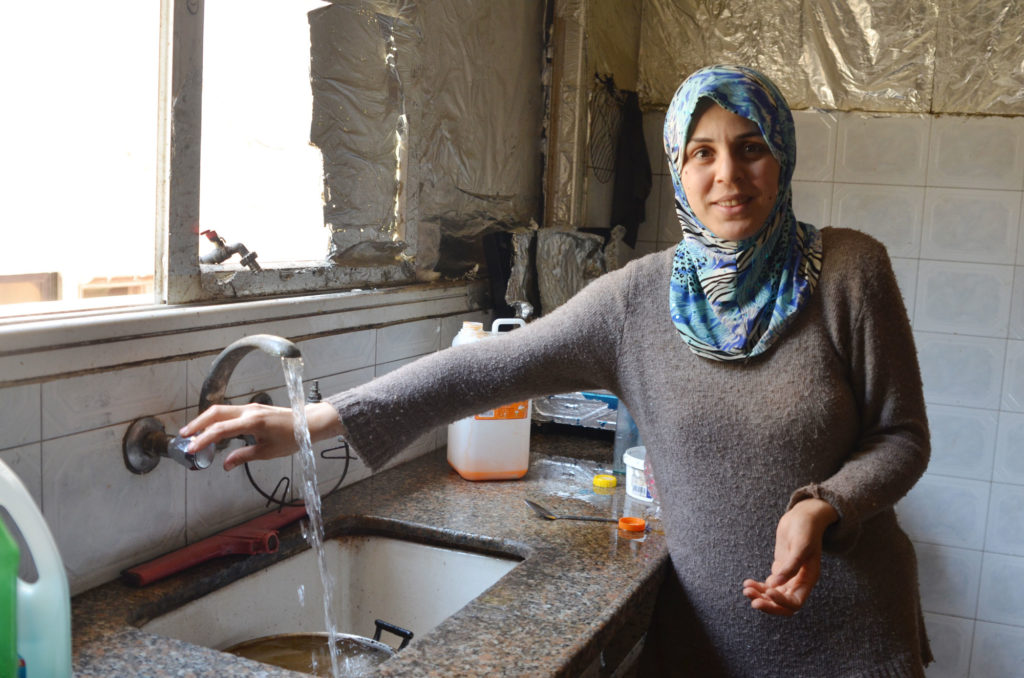

With running water in her home, Fatima and other women in her neighborhood don’t have to spend time searching for water.
Water is scarce throughout the region. In Gaza, where over 90% of water is unfit for human consumption, Anera has focused on efforts to build water networks in underserved neighborhoods. In the arid West Bank, our engineers design systems for capturing valuable rainwater and recycling wastewater, so it isn’t just thrown away.
7. Winter is on its way
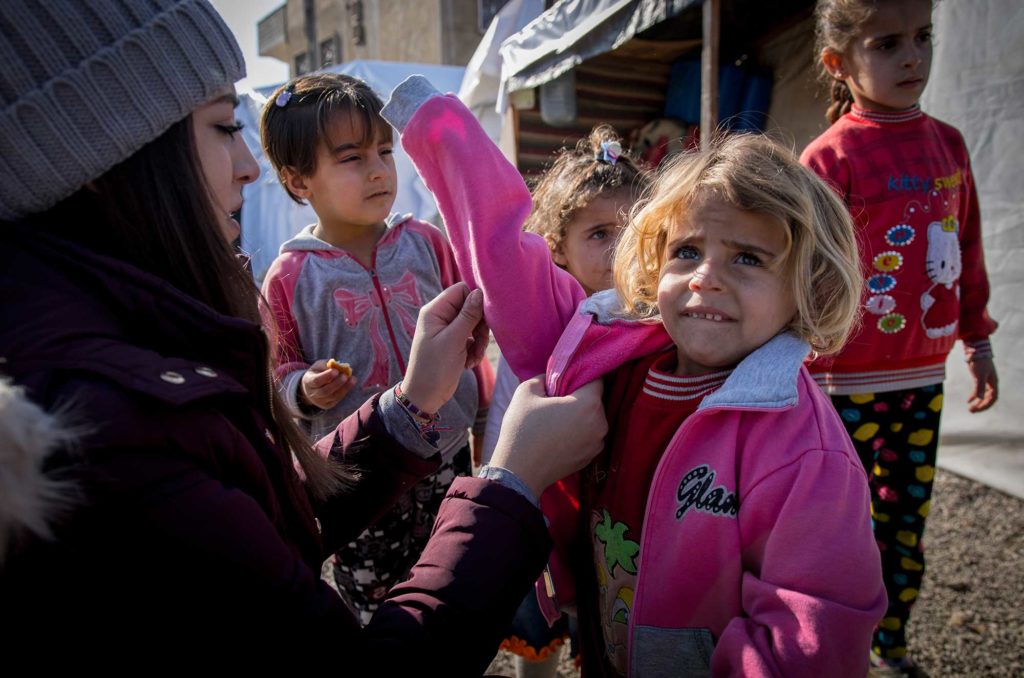

In the Bekaa Valley, where this Syrian girl lives, there are hundreds of thousands of Syrian refugees.
With winter approaching, vulnerable communities must cope with poorly insulated shelter, lack of electricity and warm clothing. Gaza often floods in the winter, and many parts of Lebanon see snowfall, especially in the rural areas where Syrians live in tents. Anera reached out to families in need last winter with items like clothes, blankets and lights to give a little relief.
8. The environment needs protection
Climate change is a global issue, and Anera is leading local initiatives to protect the environment. Our solid waste management project is tackling the Lebanon trash crisis, one small town and refugee camp at a time. It’s led by youth volunteers who are spreading the word about environmentalism by leading awareness sessions and distributing waste-sorting and recycling bins. The project was such a success that it won the Lebanon Energy Globe Award for Best Environmental Project of 2017.
9. Farming is still a way of life
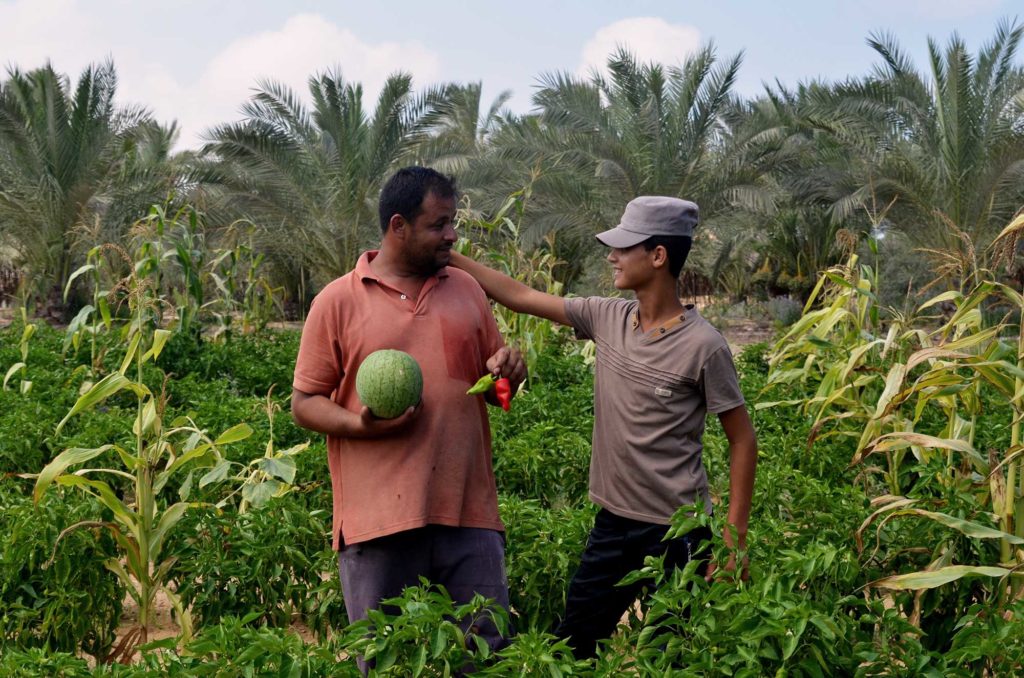

Ibrahim’s son helps hjis father out on the farm to earn money to raise pigeons. “He loves those birds!” Ibhrahim says.
Farming in Palestine is a tried and true way of life that goes back thousands of years. A core part of Anera’s work in the region supports farmers who are trying to make wise and sustainable use of scarce resources to support their families. In the West Bank, we’re helping farmers use treated wastewater to irrigate their parched fields. Now water isn’t going to waste, and farmers are making huge profits off the crops. We’re also helping Gaza’s farmers by bringing to life fallow fields through land restoration and smart irrigation.
10. Health is a human right
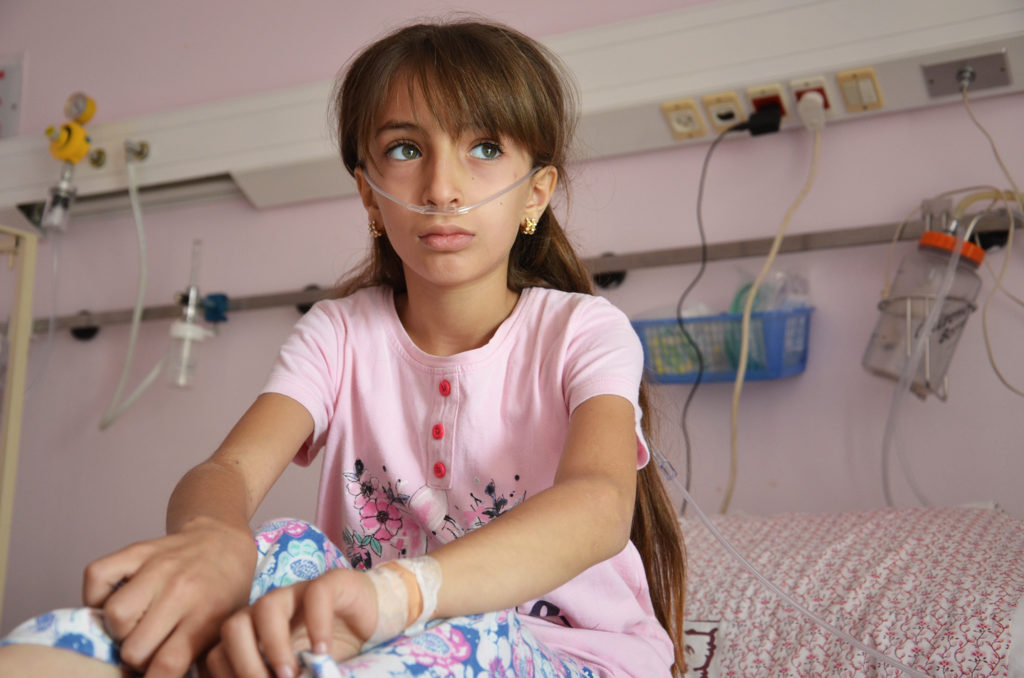

“It’s been four days since Narmeen has been receiving medical treatment and she already looks better,” said her mother.
When lives are torn apart by conflict, displacement or blockade, health sometimes takes a backseat to finding shelter and putting food on the table. Our in-kind staff in Gaza and the West Bank work tirelessly to deliver medicines despite political barriers. And in Lebanon, refugees are getting free-of-charge medicines and dental care from trusted partners on the ground.
None of this would be possible without your support. So this Giving Tuesday, #givehope! When you donate, your gift will be matched up to $10,000. Double your impact today!
OUR BLOG
Related
Joint Statement 200+ NGOs call for immediate action to end the deadly Israeli distribution scheme (including the so-called Gaza Humanitarian Foundation) in Gaza, revert to the existing UN-led coordination mechanisms, and lift the Israeli government’s blockade on aid and commercial…
